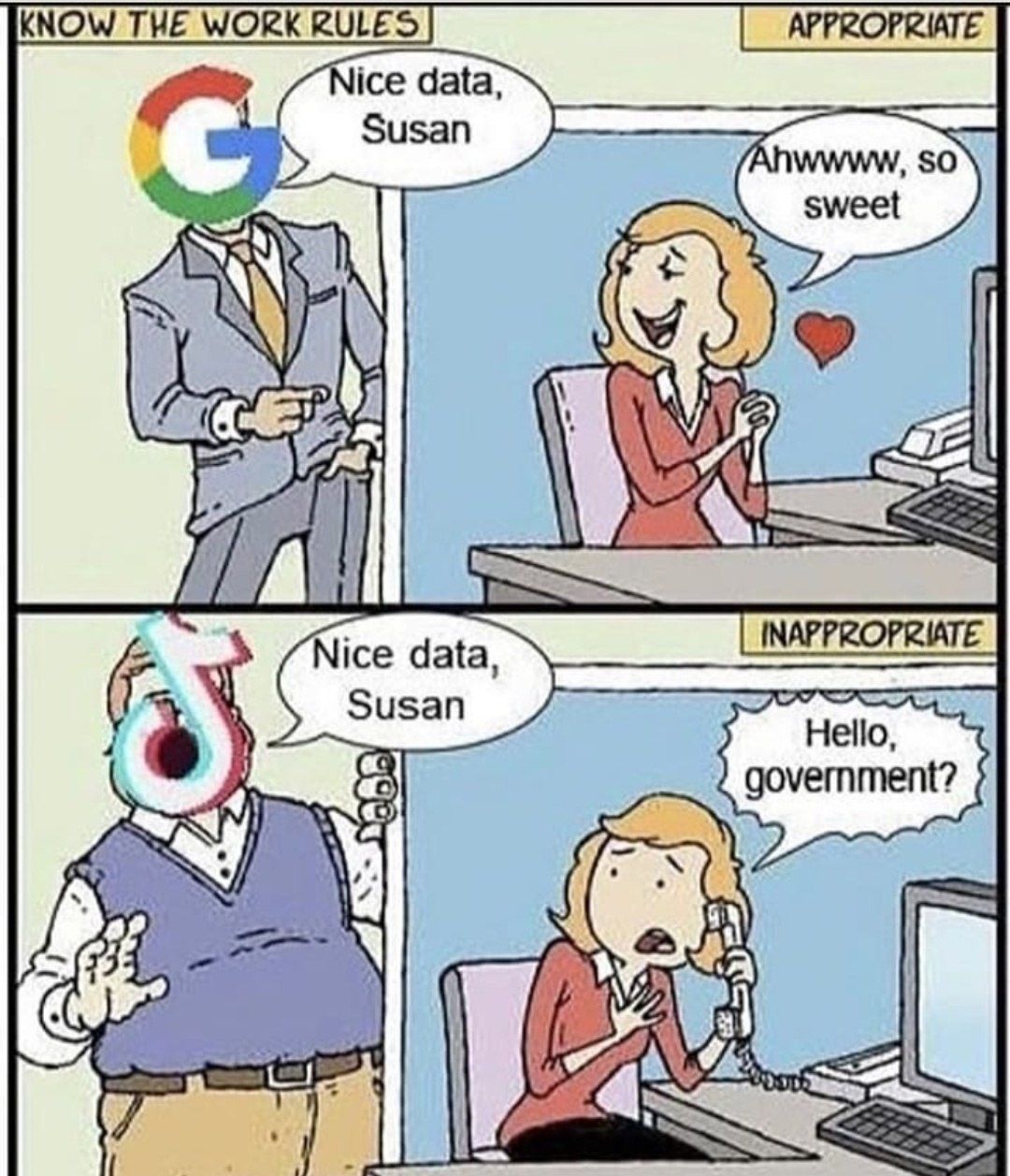VPN with ‘strict no-logs policy’ exposed millions of user log files including account passwords
Monthly Archives: July 2020
Cloudflare DNS went down, now we need more decentralization
Many major websites and services were unreachable for a period Friday afternoon due to issues at Cloudflare’s 1.1.1.1 DNS service. The outage seems to have started at about 2:15 Pacific time and lasted for about 25 minutes before connections began to be restored. Google DNS may also have been affected.
Cloudflare at 2:46 says “the issue has been identified and a fix is being implemented.” CEO Matthew Prince explains that it all came down to a bad router in Atlanta:
We had an issue that impacted some portions of the @Cloudflare network. It appears that a router in Atlanta had an error that caused bad routes across our backbone. That resulted in misrouted traffic to PoPs that connect to our backbone. 1/2
Matthew Prince
The company also issued a statement via email emphasizing that this was not an attack on the system.
Now, many people are talking about how we need decentralization on the internet to avoid such problems/incidents. People are complaining about centralization and how federation will improve things.
Until we start trying to understand why a thing is centralized, a federated alternative is doomed to fail even more catastrophically. Usually, a centralized thing is because money, security, convenience, reliability, and Metcalfe’s law.
With current federation system, we still miss some benefits and also there are some problems we should pay attention to. For example, a centralized system can have dedicated attention about security but a decentralized/federated system is more vulnerable as it works like a chain.
If one of the links in the chain breaks, the whole chain breaks. Also, a decentralized system doesn’t mean that data is stored in the air. Data is still stored in computers. I’m not saying decentralization is not a good thing, what I’m saying is that we should first write protocols and test it in various ways to be sure decentralization doesn’t affect our security and privacy, and it improves our experience.
With current systems, I can’t see a good point in decentralizing our networks except for certain matters such as social media.
Australia’s secret menace to software developers
Australia may consider modifying its law that authorizes secretly menacing any software developer in the world with punishment for refusing to insert a backdoor on Australia’s command. The decision not to menace employees individually would remove one of the many menacing aspects of this law.
Nonetheless every free software contributor would still be a target.
For this reason, I urge all free software developers to stay away from Australia.
A country willing to prosecute a whistleblower secretly and conceal his name cannot be trusted to follow any norms of decency.
About DRM and our digital rights
Digital Rights Management or DRM is the act of imposing technical constraints that control what users can do with digital media. When you are prevented by a piece of software from copying or playing a song, reading an e-book on another device, or playing a solitaire game without Internet access, you are actually restricted by DRM.
This helps big tech and DRM abusers to gain more power over users. DRM abusers can control people’s behavior and every device that is created to run their software.
Proponents of freedom of expression and human rights, therefore, call DRM not “digital rights management” but “Digital Restrictions Management”. We should say that if we want to avoid a future in which our tools are to monitor our interactions. With digital media, we have to fight not to lose control of our media and software.
Continue readingFree software cares about justice
In 1983, Richard Stallman, longtime member of the hacker community at the MIT Artificial Intelligence Laboratory, announced the GNU project, saying that he had become frustrated with the effects of the change in culture of the computer industry and its users.
Software development for the GNU operating system began in January 1984, and the Free Software Foundation (FSF) was founded in October 1985. An article outlining the project and its goals was published in March 1985 titled the GNU Manifesto. The manifesto included significant explanation of the GNU philosophy, Free Software Definition and “copyleft” ideas.
Some parts of the GNU Manifesto begun as an announcement of the GNU Project posted by Richard Stallman on September 27, 1983 in form of an email on Usenet newsgroups.
The project’s aim was to give computer users freedom and control over their computers by collaboratively developing and providing software that is based on Stallman’s idea of software freedom (although the written definition had not existed until February 1986). The manifesto was written as a way to familiarize more people with these concepts, and to find more support in form of work, money, programs and hardware.
The whole point and reason of the GNU Manifesto was to bring justice to computer users. Stallman believed that people should be in complete control of their own computers and it should us who control the computers not computers controlling us.
Most tech/computer companies are producing proprietary software and computers which violate our rights over technologies we use and we, as well as Mr. Stallman, believe this is injustice.
With this in our minds, I should say that free software cares about justice. However some people may use free software for reasons/purposes that we don’t like, the core of free software definition deeply cares for justice.
I see a lot of people in free software community who want to help the community by violating some people’s rights. Limiting people’s freedom of speech in communities or dismissing them is not what we truly believed in when it started.
I totally agree that if a person is trying to mislead people to proprietary stuff or violates the basic rules of a specific community, we should act against it but only because someone disagrees with us and/or doesn’t like the way we act about software freedom, we shouldn’t limit that person from participating or getting services.
Free software is about justice. Free software cares about justice.
Google is no better than TikTok
There are new concerns about new famous video-sharing app TikTok and its privacy. TikTok, the video-sharing app whose meteoric rise amongst teenage users has made it a challenger to the likes of Facebook, is under attack thanks to its Chinese roots.
The Trump administration said this month it’s considering banning the app in the US altogether. Secretary of State Mike Pompeo first broke the news on Monday, telling Fox News’ Laura Ingraham the administration was considering a ban on national security grounds.
It’s actually funny that a lot of people are now considering deletion of the app for privacy reasons but they have no problem with Google, Facebook, Amazon, etc. for the same thing. It’s safe to say that TikTok has even less data of users than Big Tech.
Pompeo says that using TikTok could mean people’s data ends up “in the hands of the Chinese Communist Party.” It may be correct. I encourage you to uninstall this software too. Not only this app but every proprietary privacy-violating app you have.
But something I don’t understand is that how people can be concerned about a company because it has Chinese roots but be completely OK with another company that even collects and processes more data only because it’s American.
If TikTok collecting data is bad, Google harvesting data is worse. I believe United States officials are well aware of how Google and other American companies harvest people’s data. I’m also sure that U.S. Government has no problem with people’s privacy being violated.
New concerns and media attention to TikTok is just another political game between U.S. and China. Some political analysts believe putting a ban on TikTok is just to punish China for coronavirus.
Anyway, as I said, I totally encourage people to delete the app as much as I encourage people to move away from Google and any other privacy-violating proprietary software/company. It would be just ridicules if you are concerned about privacy of TikTok but not the same situation on Google, etc.

Don’t be a digital slave, fight for yourself
During the time that slavery was legal in United States, there were a lot of fugitive slaves who fought for their freedom. They either gained it or died proudly. A lot of slaves ran away from United States to where slavery was not legal.
During these times, there were also some slaves who believed that it’s white people’s right to enslave black people. They liked slavery and they liked to be enslaved. They fought against running slaves and they served their masters proudly.
During the Civil War in the United States, some of confederate soldiers were black people. You may start thinking that maybe slavery was not that bad, huh? WRONG. Those slaves who fought against slavery were not seeking power or anything. They fought for their freedom and humanity. Those slaves who fought against freedom fighters were not free or living a good life.
Most of them were slaves just like other slaves. The only difference was that so-called masters were shrewd enough to insinuate to them that it is the masters’ right to enslave them.
Today, we see slavery in digital worlds. I am very sorry that we have new digital slaves who are defending the rights of companies (new masters) against their (new slaves) own rights. Some people are defending Google and its allies even though they know that Google and its friends (Big Tech) is spying on them and violating their rights over freedom and privacy.
When you explain the situation to them, they simply respond that Google provides services, and when you tell them that are similar/same services that are libre and privacy-respecting, they simply respond with some idiotic response such as Google is better or Google is worldwide, etc.
They are slaves I talked about. Slaves who voluntarily are serving masters. Slaves who fight against their own freedom and rights. I still am unable to properly respond to them as I believe dealing with them needs special abilities that I don’t have, sadly.

Use free software for online studies and classes
Trump has a new plan to make foreign students’ lives difficult: bar them from the US if their schools are classes online.
Distance learning, as such, is not wrong. (Whether it is as good for learning as being in a university and going to classes physically is an open question, outside my expertise.) However, they are almost surely doing it with nonfree software, and that is an injustice.
I expect Trump is doing this simply as another way to express hostility to foreigners, and is not interested in what the universities do. But if this does help convince some universities to stop making students use nonfree software, that will be a positive side effect.
Use password managers for more safety
Passwords/passphrases are almost most important part of our digital (and even non-digital) safety and security. A password is the first layer of our security. For long time, passwords were our only shield against infiltrators.
With progress of technology and computer science, we found more effective ways to infiltrate people’s accounts. Crackers are now more likely to sabotage our accounts and data. Although this sabotage is not always bad, one cannot ignore the unpleasant aspect of the story.
An strong password or passphrase can make you more secure. But, the problem is most of the times we can’t remember what password we set for our account.
We may be able to remember a 20-letter long ‘passphrase’ but it’s obviously hard for us to remember a 35-letter password which contains uppercase/lowercase letters, numbers, and special characters. This is why we need password managers.
Continue reading